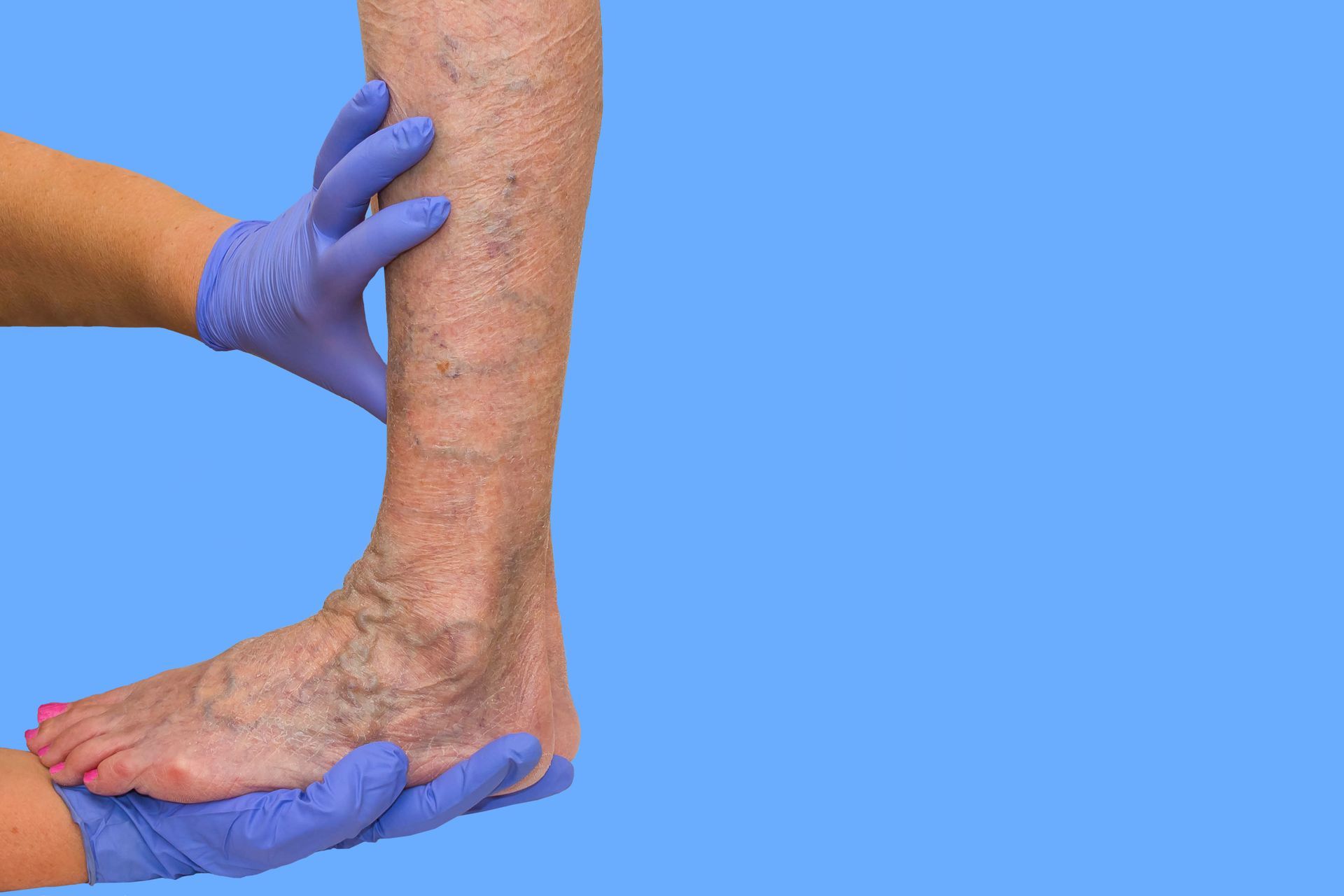20 de septiembre de 2024
Stress is a common part of modern life, and while occasional stress is normal, chronic stress can significantly affect your physical health. One area that is particularly vulnerable to the adverse effects of stress is your vascular system. Prolonged stress can contribute to the development of vascular diseases, including high blood pressure, heart disease, and conditions affecting the veins and arteries. How Does Stress Affect Vascular Health? When you experience stress, your body releases hormones like adrenaline and cortisol. These hormones trigger a "fight or flight" response, increasing your heart rate and narrowing your blood vessels to redirect blood flow to vital organs. While this response is helpful in short-term, high-stress situations, chronic stress causes your body to remain in this heightened state for extended periods, leading to several adverse effects on your vascular health. High Blood Pressure (Hypertension): Chronic stress can cause your blood vessels to remain constricted, leading to high blood pressure. Over time, high blood pressure weakens the blood vessel walls, increasing your risk of developing arterial diseases, aneurysms, and even stroke. Increased Risk of Atherosclerosis: Stress can contribute to plaque buildup in the arteries, known as atherosclerosis. This narrowing of the arteries restricts blood flow, increasing the likelihood of conditions like Peripheral Artery Disease (PAD) and heart attacks. Inflammation: Stress-induced inflammation can damage the inner lining of your blood vessels, leading to chronic venous insufficiency and varicose veins. Clot Formation: Stress increases the levels of clotting factors in your blood, elevating the risk of developing blood clots in the veins (Deep Vein Thrombosis) or arteries. Poor Circulation: Chronic stress can affect circulation, leading to symptoms such as cold extremities, leg pain, and fatigue. Signs That Stress May Be Affecting Your Vascular Health If you’re experiencing any of the following symptoms, it could be an indication that stress is impacting your vascular health: Persistent high blood pressure Frequent headaches or migraines Chest pain or tightness Shortness of breath Leg pain or cramping, especially during physical activity Cold or numb extremities Visible varicose veins or swelling in the legs If these symptoms sound familiar, it’s essential to consult with a healthcare professional to evaluate your vascular health and develop a plan to manage stress more effectively. How to Manage Stress and Protect Your Vascular Health Managing stress is key to maintaining a healthy vascular system. Here are several strategies you can implement to reduce stress and protect your vascular health: 1. Exercise Regularly Physical activity is one of the most effective ways to reduce stress and improve vascular health. Exercise stimulates the production of endorphins, which are natural mood elevators. It also helps improve circulation, lower blood pressure, and strengthen the cardiovascular system. On most days of the week, aim for at least 30 minutes of moderate exercise, such as walking, swimming, or cycling. 2. Practice Mindfulness and Relaxation Techniques Mindfulness practices such as meditation, deep breathing, and yoga can help calm your mind and reduce the physical effects of stress on your body. These techniques lower your heart rate and blood pressure, promoting relaxation and better circulation. Incorporating just 10-15 minutes of mindfulness into your daily routine can significantly reduce stress levels. 3. Maintain a Healthy Diet What you eat can play a role in both stress management and vascular health. A diet rich in fruits, vegetables, whole grains, lean proteins, and healthy fats can help reduce inflammation, lower cholesterol levels, and improve blood flow. Limit your intake of processed foods, salt, and sugar, as these can contribute to high blood pressure and vascular problems. 4. Get Enough Sleep Lack of sleep can exacerbate stress and negatively impact your vascular health. Aim for 7-8 hours of quality sleep each night to allow your body to recover and regenerate. Establish a relaxing bedtime routine to help you unwind and improve your sleep quality. 5. Stay Socially Connected Maintaining healthy relationships and staying connected with friends and family can provide emotional support during stressful times. Socializing can help reduce feelings of isolation and anxiety, lowering stress levels and improving overall well-being. 6. Manage Your Time Effectively Poor time management can lead to feelings of stress and overwhelm. By prioritizing tasks, breaking them down into manageable steps, and giving yourself time to relax, you can reduce the pressure you feel in your daily life. Saying no to unnecessary commitments is another valuable tool in managing stress. 7. Seek Professional Help When Needed If stress is overwhelming or affecting your health, don’t hesitate to seek help from a healthcare professional or counselor. They can provide you with strategies to manage stress and offer support tailored to your specific needs. Conclusion While stress is a normal part of life, it can have lasting negative effects on vascular health if not managed properly. Understanding how stress impacts your veins and arteries and taking proactive steps to reduce stress can protect your vascular system and improve your overall well-being. At California Vascular Health Specialists, we’re here to help you manage the effects of stress on your vascular health. If you’re concerned about your vascular condition or want to learn more about how stress affects your health, contact us today to schedule an appointment. We offer comprehensive vascular care to help you live a healthier, more vibrant life.








